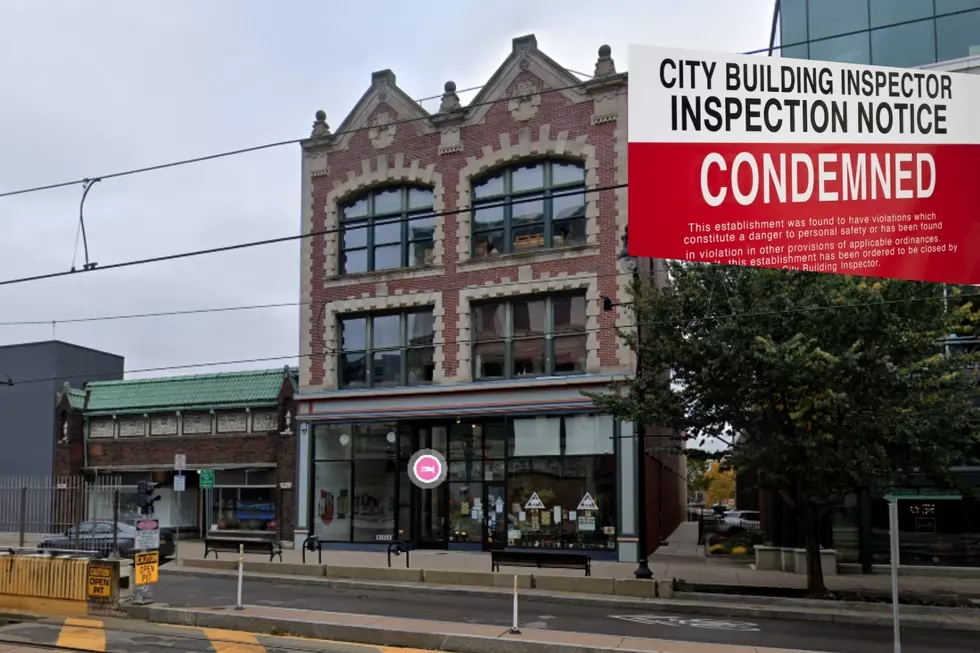
Hostel Races to Buy Condemned Property from Buffalo, New York
Hostel leadership racing the clock to try and buy the building from the city before the repair contract is awarded
Under an order from the Buffalo Urban Renewal Agency (BURA), the site of Hostel Buffalo-Niagara has been fully vacated as of noon on April 18.
While the organization is currently without a physical location, much is going on behind the scenes to find a new location, if needed, or, in what would be the hostel’s preference, to work with the city of Buffalo to regain and take full ownership of the building at 667 Main Street.
How did the hostel get here in the first place?
It’s worth reiterating that the city of Buffalo owns these properties, with BURA serving as landlord and, therefore, responsible for with maintenance and upkeep of the buildings, say both Katherine Pessecow, president of the hostel’s board of directors, and Gwen Howard, senior vice president of architecture at Foit-Albert Associates. Howard was working for Buffalo Place in 1995 when Rick Reinhardt, then the executive director of that organization, “completely bought into the vision of the hostel group, as they were an emerging group. He recognized the value of that kind of accommodation in the full breadth of options” for downtown Buffalo.
As a result, Buffalo Place was committed to providing the hostel’s leadership with first some technical assistance, then working with the leadership to “nurture a spin-off non-profit development corporation” to create the hostel in what was then a vacant storefront on Main Street.
The building, owned at the time by a developer from New Jersey, initially was slated to be operated by the Statler Foundation on the first floor and into the Washington Street building and turned into a culinary and hospitality school. Funds of around $700,000 had been secured for renovations and updates to the building, built in the early 1900s by EB Green, a well-known Buffalo-based architect. Among the organizations that worked to secure funding for the project, in addition to the Statler Foundation, were the American Express Foundation, the Bristol-Myers Squibb Foundation, the Buffalo Foundation and DB Trust, in addition to the National Trust for Historic Preservation and Hostel International, Howard said. When the Statler project was off the table, BURA took over as custodian of the building and the city was responsible for upkeep, but the hostel had a home on Main Street with the city’s support under the leadership of then-mayor Anthony Masiello.
What’s the current state of the hostel and its future?
Since the hostel was closed to travelers and deemed “condemned” by the city on April 10, the organization was able to get back in for three hours at a time over the course of four days, for a total of 12 hours, to try and remove some of its property in addition to collecting the belongings of JP Piret, the hostel’s manager and permanent resident. These moving trips were supervised by city officials but were conducted without electricity or large lights, Pessecow said. All the custom-made beds that fill the hostel remain on the property.
Tina Nunez, president and founder of Medusa Development Inc., says the building on Washington Street, and the courtyard that connects with the hostel property on Main Street, is in a state of disrepair, with a roof that has “gaping holes” and “about three-quarters of the wood joists and structural connection points in the middle portion only are actively caving in. An uncontrolled and spontaneous collapse could cause damage to either the Washington Street or Main Street towers.”
The deadline has passed for the city’s request for proposals for contractors to submit bids for this renovation work, meaning a contractor could be announced soon. By the city’s estimate, the cost of these repairs is$750 per square foot, totaling about $1.8 million dollars, a price Nunez characterizes as well higher than what the cost should be, even if they were to estimate the cost of a more complete renovation. She suggests the repair price for other adaptive reuse projects like this one is typically in the ballpark of $150 to $330 per square foot “on a very high end.”
At that price, it’s likely the hostel’s leadership team would be presented with a much bigger price tag when the repairs are completed if the city does offer the group the right of first refusal to buy the building. It’s possible, Nunez believes, the cost would be in the low millions of dollars.
“If they’re trying to take full market value right now, which is $1.2 million, and add the $1.8 million roofers’ repair onto it, that is unheard of,” Nunez said. “Remember 60% of the building has no utilities, it’s fully gutted and in distressed condition. Actual market (comparables) for that are for a 6,000 square foot building, like Hamlin House, which sold for $360,000 and was in much better condition.”
But Nunez is working with Pessecow and the hostel’s leadership to try and take the building, and the costly repairs, off the city’s hands, now and for good.
She has been in communication with city officials, including BURA, with a proposal to buy the building outright, before work begins and instead of sending the repairs out to a contractor, to make the building structurally sound and return the hostel to operations faster. Additionally, her proposal includes the Washington Street space and the courtyard in the middle between the two buildings.
“Our plan would keep the masonry side walls and create a multi-use enclosed courtyard/atrium/urban garden space, and remove and dispose of the rotted roof and floor joists,” Nunez said. “We are ready and able to do this for a small fraction of what the city is proposing for their repair on a portion of the building that is frankly too far gone, and that is not a term I take likely as a preservationist and someone who rescues houses for a living. Adaptive reuse green, urban green space, is the most viable and cost-effective option in this case and would hands-down be the highest and best use of the area between Washington Street and Main Street.”
Now that the deadline for proposals has closed, another deadline is approaching: The city has a limited amount of time in which to select a contractor and award their bid. That also means Pessecow and Nunez must make their appeal to the city and attempt to agree to terms on a sale that would give them immediate control of the property, instead of awarding the contract for repairs. A meeting set between Nunez, Pessecow, and city officials slated for last Friday, April 26, was canceled and, as of Monday afternoon, had not yet been rescheduled.
In the meantime, the hostel is continuing to get support from Buffalo residents and businesses alike, as evidenced by heart-shaped “We love our hostel” signs popping up around the city in the past few months. “People have never stood up to say, you know what, actually, we don’t need a hostel,” Pessecow said. “I have not seen that happen. I could get if we were swarming in controversy or if people were complaining about the noise.”
She maintains she wants to work with the city, and it’s in the best interest of the city, to reopen the hostel at 667 Main Street, to keep an affordable, welcoming place for international and domestic travelers in the middle of downtown, close to public transit, artistic offerings and within walking distance to many restaurants. Pessecow hopes to put all the confusion and bad feelings in the past and move forward to build the hostel back, stronger and more vibrant, as soon as construction is completed.
“We're doing the work. We have the plans. We have the numbers. We have the people. We have the power and we can take this off of the city's hands. We’ll use our money, we’ll stabilize the building and we’ll put in something good. If (Nunez’s company) buys it, the property can go back on the tax roll as well. This should be an easy win,” Pessecow said. “We should all feel good about moving forward.”
[PICS] $1,000,000 Home That Just Sold in Buffalo, New York
Gallery Credit: Realtor.com via Hunt Real Estate and Judy Jack Lewis


